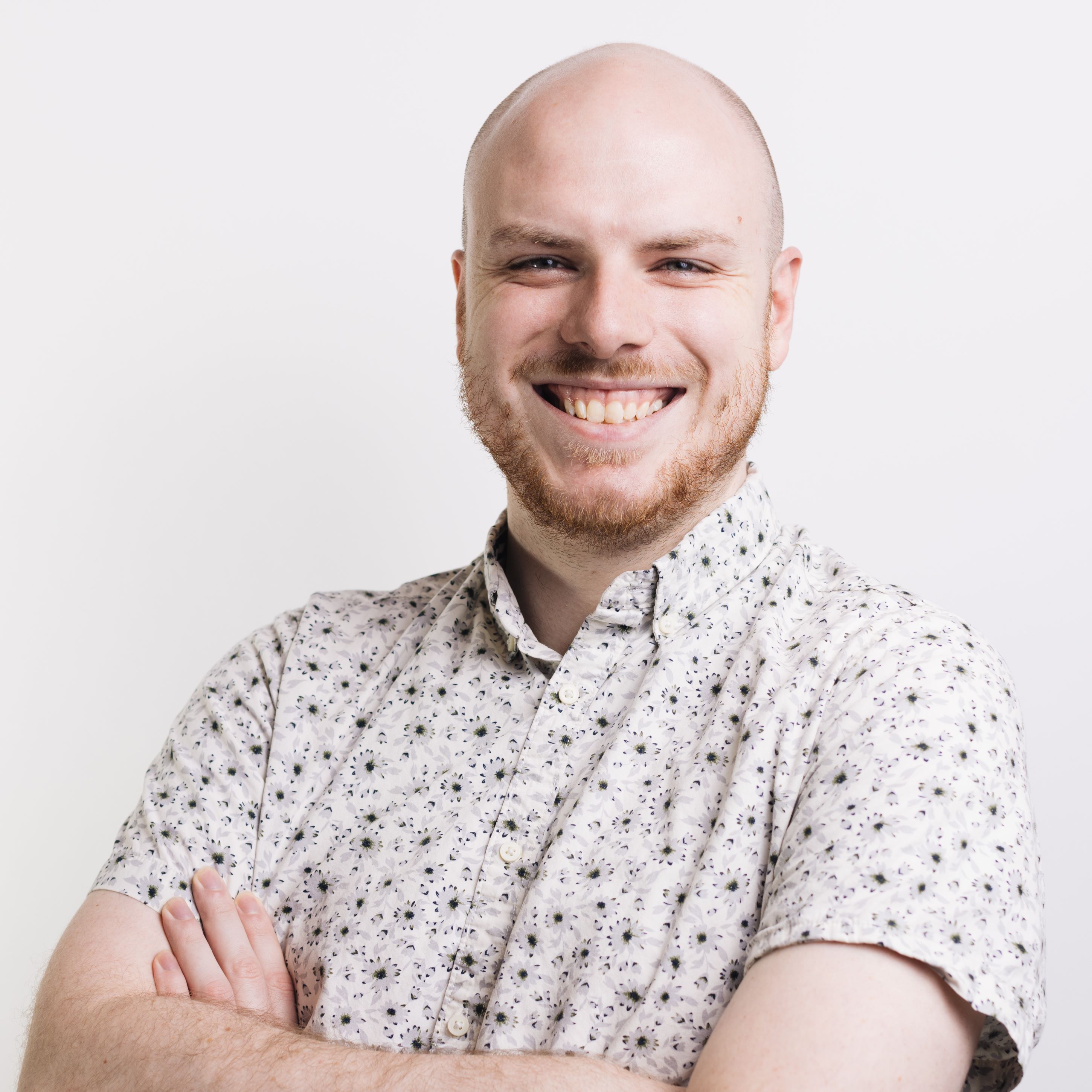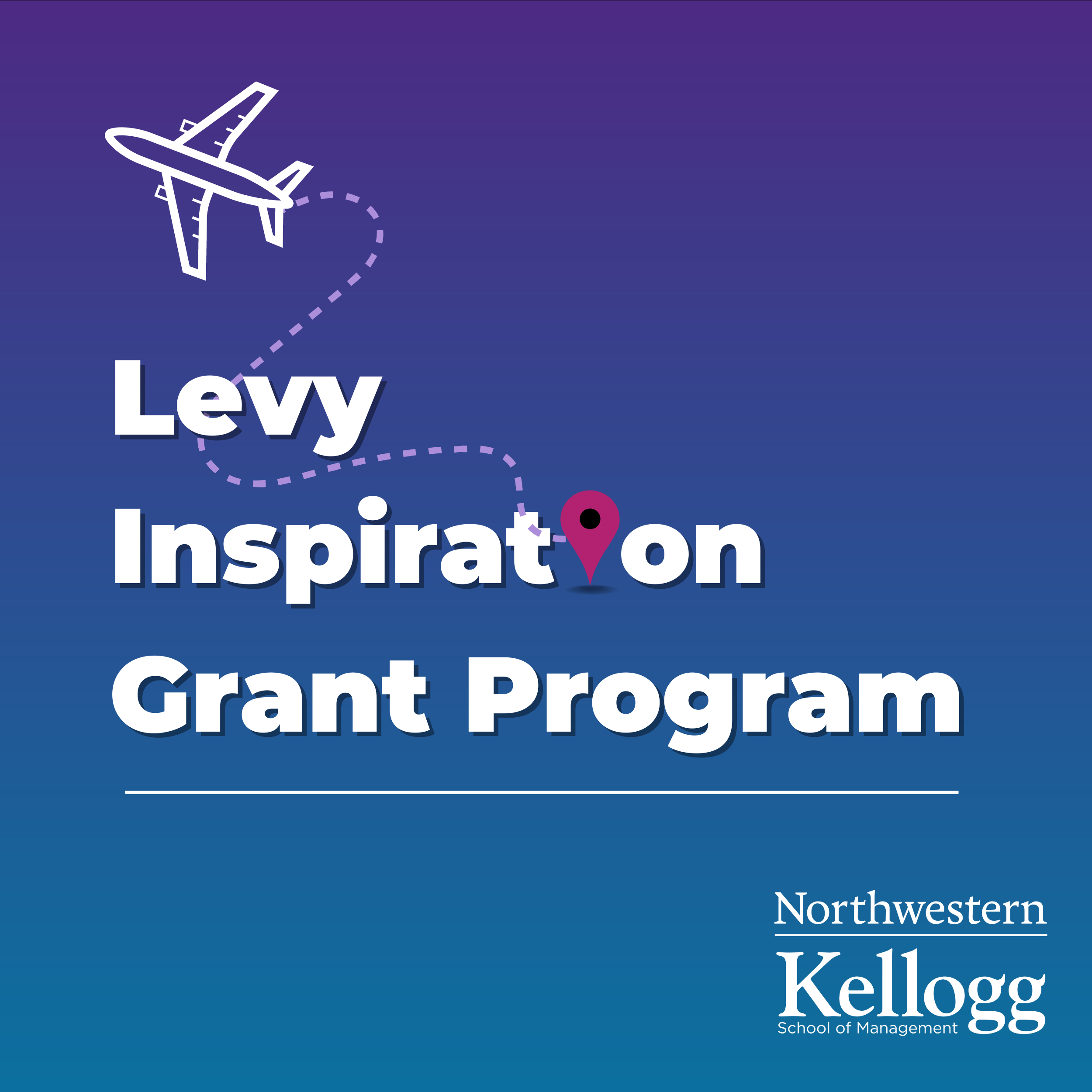Episode Transcript
The question of whether to follow your passion or walk a more secure career path is a choice that people confront every single day with no clear answer. Priscilla was no different. She grew up with a love for food instilled by her family, but starting her career, she chose a stable job because she felt that's what she should do. Eventually, she began to rediscover and acknowledge her passion for food, and recently she traveled to France and Kenya to see two radically different approaches to food access. While there, her journey of self-discovery took an unexpected turn as she learned more about food equity, sustainability, and herself. This is her Inspiration Grant story.
I'm very interested in food tech and mostly food equity and food sustainability. Looking back in my life I sort of inherited it in my family DNA, that we are just really passionate about food growing up. As a family, we make everything from scratch. If you're thinking about the American way, like we'll get flours, we'll make our own pasta, we'll make our own buns and even with an apartment, we will plant different vegetables such as the tomato and chili in the balcony. My grandparents teach me to learn all those plants, and that sort of was the beginning of my childhood, how I got passionate into the food space. I remember how happy I was getting to play with different kind of food at home, and I realize if I'm able to leverage food tech, it is probably something that can make so many people happy. It's not as fancy as, AI and camera movement, but it is something that's genuinely from the bottom of my heart, I feel it's beneficial and I feel have a lot of impact.
I traveled to two countries, namely France and Kenya, and I would say the reason I'm doing this country is because I really want to see one, is how good it's like, which is why I chose France cuz they really have a lot of innovative food technology startups. And it's a country who people treated this industry highly. And the other way is Kenya, cuz this is where the impact is at. I came in with two hypothesis. One of them, which I really want to test in France, is how much do consumers' awareness influence the business decisions. The second thing I want to test was more of in Kenya, I'm coming in with the assumption that it's more of like a blue ocean" sort of space where there's a lot of development potential for like innovative farming, organic farming, all those technologies that are able to find sort of a place to test themselves in Kenya. I was going in to see whether it is a possible space for that to happen.
There were several moments where I was just wowed by an experience in France and it was not even in the business setting. So when I was there, I'm taking French class as well by myself, so that I could communicate with people there better. And somehow, one of the weeks the topic was food sustainability. I was so surprised by that, cuz you know, language class is something, in my mind, you would teach people how to order in restaurant because my level was definitely not there yet to talk about like sustainability, but they treated it as such a natural thing. Even the teachers there and the employees, they were all so passionate and they all know so much about the space in a way that I feel they know a lot more than me, which I did an MBA here, I'm passionate in this space, I'm supposed to know a lot more, but all those stuff that I didn't hear until I was in Kellogg, it was like everyday life for them. So that was the first moment when I got really surprised. If I'm looking at a society where the entire consumers' awareness is to a certain level, I think that is a great example to showcase that, cuz I was not even talking with the grocery store's owner, I was literally talking to my French teacher.
One of my experience in Kenya, was the startup that's called Sun Culture. so Sun Culture was a startup that tries to provide irrigation, like the water irrigation system for farmers in Kenya. And they use, solar battery to power the entire irrigation program. I asked him, what is the biggest challenge and what are some of the things you did to face that challenge? He told me it's like the biggest challenge is that the farmers simply do not have money. What he told me about is like food is never only about food. It is the reflection of the entire socio-economic system of the place you're looking at. What Sun culture ended up doing after that is not only are they a company that provides the irrigation system, the product, they also have a financing system. So they started moving more from agritech/foodtech into a fintech company that combines both because that's the only way. The local farmers, most of them do not even have a bank account. There is just no way for them to get the credit in the society to ask for financing, so if you want to sell your product, you got to help them in financing as well. The takeaway from this experience is there are so many other problems that you need to solve when you are trying to push through your product and you really need to be in that field to talk to the farmers to realize what is their problems.
In Kenya, I was able to get in touch with one of my contact, Yi. Yi was a McKinsey alumni. She used to work with McKinsey Los Angeles office, but now she's in Kenya doing one of startups I visited, it's called Farm Works. So Farm Works basically the main thought was to empower local farmers. She come into the problem knowing the farmers only plant onion and potato and carrots. That's the three of things. So Yi's company coming in, they were trying to teach the farmers know-how, however, it is not always the farmer's desire to follows your way and they sort of don't believe in you. What their company did was what she called "A/B testing in farmland." Every planting season, Farm Works would have a few pieces of land and the farmers would have a few pieces of land. They were planting the exactly same things. While Farm Works is saying, "you see, like I brought in different technologies. I brought in different irrigation schedule and we are gonna see after the season whether my piece of land harvest more than your piece of land." It's such a cute way, it's such a funny way, but it is through this process that season after season, they were able to really build up the trust between the local farmers and their company. So now they've realized, "oh, these people do know how to farm and this does work pretty well."
My friend Yi did her undergrad in the US, work in McKinsey, again, like all those big names in transit into where she is and she told me, she said, "The developments of society needs some people to push the boundaries of human being: those are those who work in tech, who work in AI, who are athletes, for example. But it also needs another group of people who try to bring all the others to the boundary and to the frontier."
MBA is all about being at the frontier. It's all about being the first group of people and I've spent a lot of time here thinking I might be one of them. Because of this opportunity of the Levy Grant, I was able to actually go in there and see for sure how it can be very different. I think that make me realize that it is about a choice of just how much I would want to achieve the impact I wish to have in this world. it is so easy to just, work in a stable life, in a corporation for all your life. But I come into Kellogg, I come into this place to pursue my career, not only my job.
So I guess this is something that despite it's challenging or it's scary at first, I sort of were able to settled in the later part knowing that maybe this is just something I need to do, and it's not like I'm born in a rich family, I'm from a humble beginning in a small city in rural China. This is where I come from. If that is the sacrifice I need to do to achieve some impact, I'm happy to take it.
The other thing that sort of helped me with that realization was people there were really happy. All my friends I met in Nairobi, they're satisfied. They know what they're doing and they just truly have faith in what they're doing. I think that is something, other than just seeing the business model, just the vibe they give out on themselves, it's something that really amazed me.
I would say for this trip, it feels like I got a piece from the people I visited or from the place I've been to. I sort of picked up their bravery a little bit and become more firm and confident about myself and my path. All the contact along my trip are young women who are pursuing their own passion and they're all women at my age. I feel just going back to my life here, there were so much anxieties, there were so much pressure now, seeing all the difficulties they're facing and when I'm back I was like, "oh, you know what, that's small piece of cake." That is what this trip brought me. If I know there are so many like-minded people are fighting for a future which can bring better impact in people in the food tech space, I shouldn't be nervous or I shouldn't be terrified about what future holds, cuz I know there are so many people just like me waiting for me there to support me.
The Levy Inspiration Grant Program is made possible through the generous support of Larry and Carol Levy and is managed by the Entrepreneurship program at the Kellogg School of Management at Northwestern University. To learn more about the Levy Inspiration Grant Program and other ways we support student entrepreneurs, visit our website at kellogg.northwestern.edu. I'm your host, Tyler Seybold. Thanks for listening.


